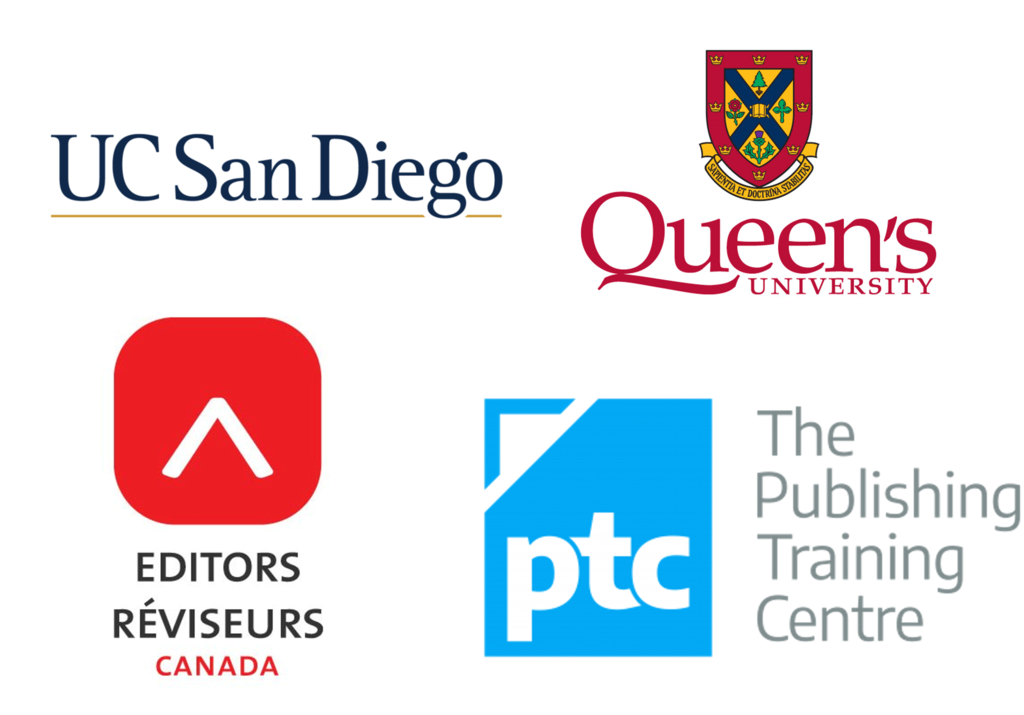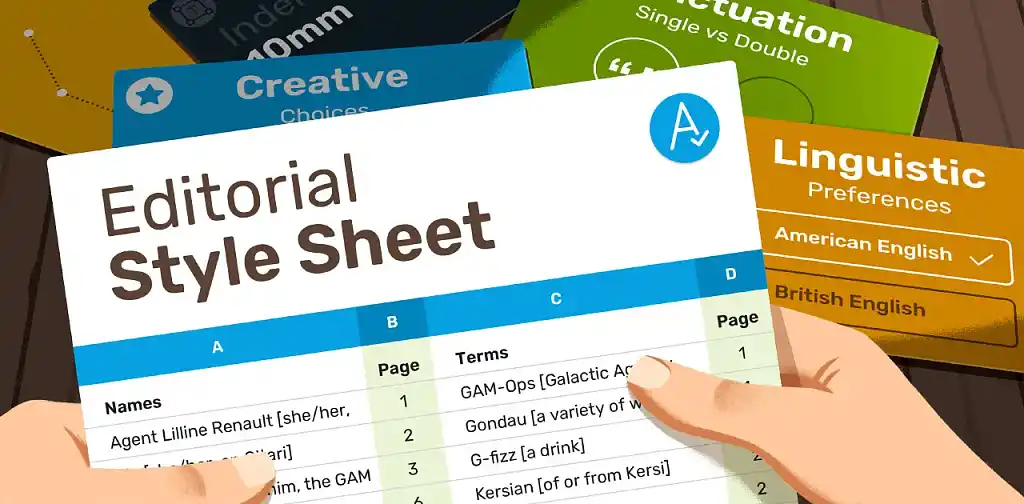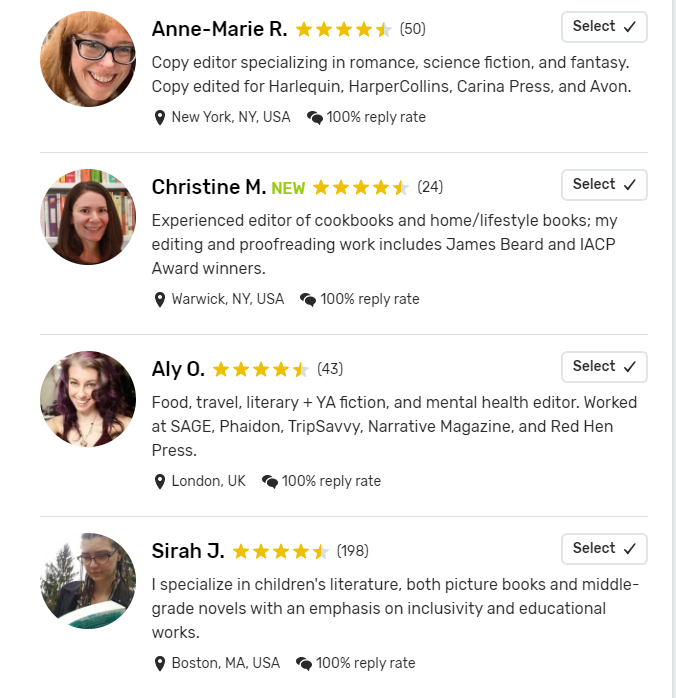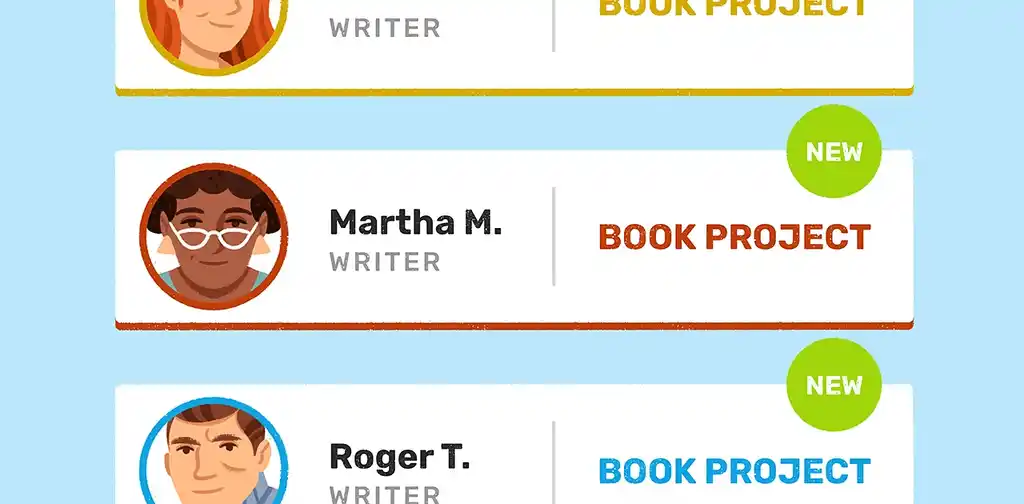Blog •
Last updated on Aug 03, 2022
How To Become a Copy Editor: 6 Steps To Book Your First Clients
Copy editors get to work with amazing writers, helping them craft beautiful and flawless texts, all while building a sustainable publishing career for themselves. With great attention to detail and a sharp red pencil in hand, they are an author’s best friend.
If that sounds exciting to you, this article outlines how to become a copy editor in 6 steps.
Looking to hire a copy editor, not become one yourself? We’ve got 100+ copy editors available for hire right here.
1. Study English, communication, or journalism
Being a good writer does not guarantee that you’re a good copy editor. Instinctively, most native speakers don’t think about grammar rules when writing and tend to miss mistakes when reading because their brain corrects them automatically. A copy editor, however, must pay attention to little details like these. Should it be “James’ homework” or “James’s homework”? What’s the difference between e.g. and i.e., and is the author using them in the right context?
Get a degree or a copy editing certificate
While it’s not strictly necessary to have a qualification, it certainly doesn’t hurt to have verification that you’ve been professionally trained. You can learn these rules by pursuing a college degree in English, communication, or journalism, or by taking a certificate course.
Having copy editing certificates from reputable organizations on your resume might nudge clients to pick you over others candidates. Most courses will teach you practical skills to work with different author’s voices and be aware of diverse language choices (to make texts more inclusive and avoid microaggressions) 一 thus they’re a great way to prepare for a freelance copy editing career.

2. Study up on editing style guides
Besides the standard language rules and practical interpersonal skills that a certification program can teach you, you’ll also have to do plenty of homework — including studying style guides.
Style guides outline the writing and formatting standards for a piece of text. Think details like whether an em-dash comes with spaces on either of its sides, whether the Oxford comma is used, or what citations should look like. These tiny details can really elevate the professionalism of a piece of writing, but authors aren’t very good at perfecting them — which is where copy editors come in.
In book publishing, the commonly used guide is the Chicago Manual of Style. There are more options for academic writing, including AP, APA, and MLA. That said, each copy editing project may come with a different guide, and it’s best to brush up on what is appropriate for your niche.
The more you know about these style guides, the better. Clients would appreciate your ability to not only make their writing correct and coherent but also professional in the eyes of readers 一 especially when editing scientific, academic, or technical writing. Luckily, these guides are available online as ebooks that you can refer to, but the more you learn while you train, the less work time you’ll spend scanning pages of guidelines.
Top tip: on top of style guides, copy editors can also set up customized style sheets for each piece that they're editing, where they make note of all creative decisions that are unique to the text to maintain consistency.

FREE RESOURCE
Editorial Style Sheet Templates
Set up a sleek and easy-to-use style to keep track of all your creative decisions.
3. Focus on an editorial niche
You may be tempted to accept any copy editing job coming your way when you first start out, but it’s always more effective if you can focus on specific areas. Think of it like this: a copy editor who works well with academic articles may be great at clarifying technical expressions and formatting in-line citations but they may not be used to the more poetic prose of literary fiction pieces. Logically, clients want to work with someone who knows their genre.

As you test the waters, begin to think about what you enjoy doing the most, and what you’re best at. Consider your specialty on two levels:
- The format: Do you want to work on news and magazine articles, SEO copies, or full-length books?
- The genre: Will the content be about politics or lifestyle; the tech industry or education; romance or thriller — or something else?
Depending on the circumstances, you might not be able to specialize on what you truly want at first. But that is still something you can work towards. Editor Alyssa Matesic shared with us in a webinar that she worked on a lot of thrillers and suspense in her in-house career because that was the opportunity available at the time, but she always had an interest in creative nonfiction. When she started freelancing, she was able to enter a new niche in memoir editing.
So don’t worry about getting it perfectly when you start out — begin with a genre you can work in, and read plenty of it to pinpoint its popular tropes, language styles, voice, etc. Once you become an expert, highlight your expertise in your resume.
4. Create a friendly resume and portfolio
To succeed in freelance copy editing — or any kind of self-employment work — you need to have a good profile. This is your shopfront and your resume, where clients come to see whether you’re fit for their project.
The structure we have for Reedsy profiles, and what we’d suggest for your website, goes as follows:
- A brief introduction about yourself, including qualifications, and specialty;
- A detailed list of (relevant) employment experiences, if any;
- A portfolio of books (or texts) you’ve worked on; and
- Reviews and testimonials from former clients, if any.
Wondering if you should create a Reedsy profile? Check out Reedsy's Selection Criteria or take this quiz:
Are you ready to join Reedsy?
Take this 1-minute quiz to find out.
Every part of your portfolio is testament to your work’s quality and professionalism, and ideally, your target client will be persuaded a little more with every line. You should highlight your niche, displaying work in your preferred genre front-and-center. Feel free to exclude far-removed pieces to keep things concise and cohesive.
5. Find freelance copy editing jobs
You’ve got the skills, the profile, and perhaps even a little experience under your belt, copy editing a friend’s work or blog content. Now it’s time to find clients that will pay well for your services.
The most common sources for finding copy editing jobs are:
- Publishing marketplaces like Reedsy;
- Freelance gig sites like Upwork and Indeed;
- Editorial societies’ job boards;
- Occasional job postings on LinkedIn, Twitter, Reddit; and
- Major book publishers (who maintain a database of regular freelancers).
Be aware that you may run into freelancer scams on sites with less stringent criteria like Upwork. It is easier to start with those marketplaces, but aim to move to specialized marketplaces for your preferred industry as you progress.

JOIN REEDSY
Find exciting new projects
We connect publishing professionals with our community of 1,500,000 authors.
Be flexible with the projects you take on
Another tip to kickstart your career is to be flexible. We did say to train yourself as a copy editor and pick a niche, but you have to plan for the (common) scenario that your desired work opportunities won’t come knocking right away. Veteran copy editor Aja Pollock says:
“Most production editors will want to test your skills on proofreads or even on slugging, which is checking that corrections marked in a previous set of proofs were properly made in the current pass. Accept any work anyone will give you, on any type of book, so you have a chance to prove your worth.”
By the time the opportunity you dream of comes around, your resume will be strong enough to give you a proper chance of getting the job.
6. Use client feedback to market your services
One of the best ways to market yourself is to let others do the work. For a person interested in your copy editing service, nothing is more reassuring than to hear from your previous clients that you are understanding, professional, and excellent at polishing writing.
So cultivate those positive customer testimonials early on and display them clearly on your website. Don’t be afraid to ask for feedback from your clients after each collaboration and encourage them to come back for other projects, or refer anyone in need of copy editing to you.

Build strong partnerships with authors
Writers who need editing can sometimes be afraid that editors are going to be critical and ask them to cut out phrases and sentences that they poured their heart into. Reassure them that you aren’t here to make them “kill their darlings”, but to point out places for improvement and suggest changes. You are on their team and you work to elevate their writing, not dictate it. This makes you a better creative collaborator and someone clients will be happy to recommend.
For more tips on building strong partnerships with authors, check out this discussion on client retention strategies between editors Allister Thompson and Ashley Wyrick.
Being a copy editor can be fun and rewarding — not only do you get to read exciting new work, but you also get to be a part of authors’ wonderful journeys. We hope that this guide has given you what you need in order to become a beloved copy editor. Good luck!

FREE RESOURCE
The Full-Time Freelancer's Checklist
Get our guide to financial and logistical planning. Then, claim your independence.

